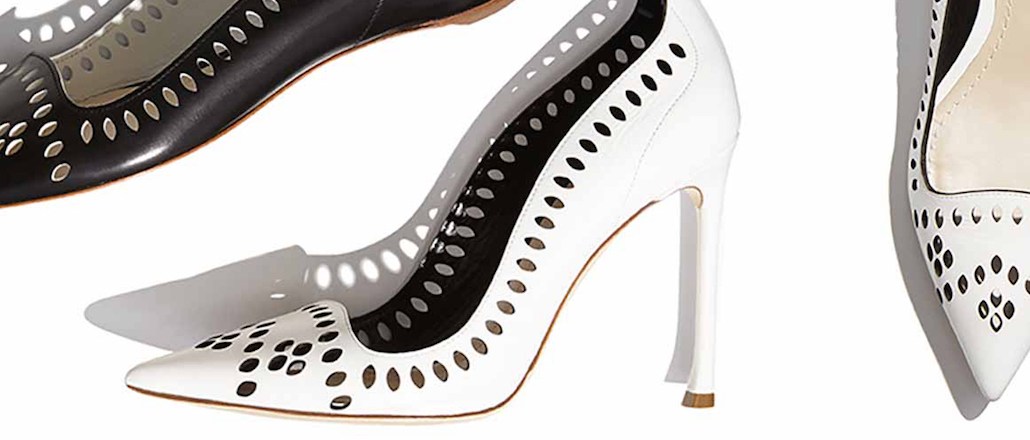
On Monday, Christian Dior shoes went on sale online for the first time, thanks to a partnership between the French fashion house and high-end department store Bergdorf Goodman. The digital pop-up shop, featuring 14 styles, including bejeweled sneakers and laser-cut pumps, will close up on Dec. 31.
The online store is a timid, 4-inch-heeled step into e-commerce for the luxury brand. Beyond entry-level makeup, skincare and fragrance products, Dior doesn’t offer e-commerce in its online store. Other retailers, like Neiman Marcus, sell limited Dior collections, like sunglasses and beauty products.
For Dior, the Bergdorf partnership doesn’t mean it’s diving into e-commerce. Dior Couture president Pamela Baxter told Women’s Wear Daily that there are no concrete plans for the company to expand its online offerings following the pop-up.
Baxter said, “The retail experience and relationship building between our expert sales associates and our clients is really important to us. To be quite frank, we don’t know how that relationship would build online. I have got people in the stores who know exactly who their client is.”
Dior isn’t alone in its hesitation to sell luxury online, but most legacy brands have warmed up to digital sales, one by one. Chanel changed course earlier this year, when it announced its e-commerce store would open in 2016; Fendi and Tom Ford also moved online this year. In addition to Dior, Céline is one of the last luxury names to remain offline.
According to Baxter, the client relationship is the brand’s top strategic priority.
“When we find that experiential relationship connection and how to do that online, we’ll jump in with both feet.”
A major problem facing any retailer, whether it’s Christian Dior or long-standing department stores, is recognizing the customer as the same person whether she’s shopping in-store or online. Baxter said that at Dior’s price points, the need to build a lasting relationship with a consumer outweighs the need to sell goods online — at least for now.
“A lot of the luxury brands have held back on online sales because they weren’t chasing dollars. Luxury is about scarcity of product,” said Sucharita Mulpuru-Kodali, senior analyst at Forrester Research. “There are ways to have a very high-class experience online — very wealthy people purchase online. I don’t think that it degenerates a brand now; it’s so ubiquitous now that the online experience reinforces the physical experience.”
Bergdorf Goodman’s president Joshua Schulman said that online is going to have to become a “happy fact of life” for luxury retailers. He has also helped coordinate Bergdorf online pop-up stores with Christian Louboutin and Alexander Wang.
“The customer for these luxury brands leads a very busy active life and is used to getting the convenience of being able to shop both online and in-store. The brands realize that one doesn’t negate the other — one plus one equals something additive from a customer-experience point of view.”
For the Bergdorf’s pop-up shoe shop, Dior is trusting the luxury department store’s customer service to handle the online experience. The two companies also recruited It-girls Eva Chen, who runs fashion for Instagram, Leandra Medine of Manrepeller, Shiona Turini, a contributing editor at The Cut, and Aimee Song, the blogger behind Song of Style, to model the shoes.
And if any pearl-clutchers can’t fathom buying Christian Dior online, the collection will be on sale in Bergdorf’s Manhattan flagship store until the end of the year.
More in Marketing

YouTube’s upmarket TV push still runs on mid-funnel DNA
YouTube is balancing wanting to be premium TV, the short-form powerhouse and a creator economy engine all at once.

Digiday ranks the best and worst Super Bowl 2026 ads
Now that the dust has settled, it’s time to reflect on the best and worst commercials from Super Bowl 2026.

In the age of AI content, The Super Bowl felt old-fashioned
The Super Bowl is one of the last places where brands are reminded that cultural likeness is easy but shared experience is earned.





